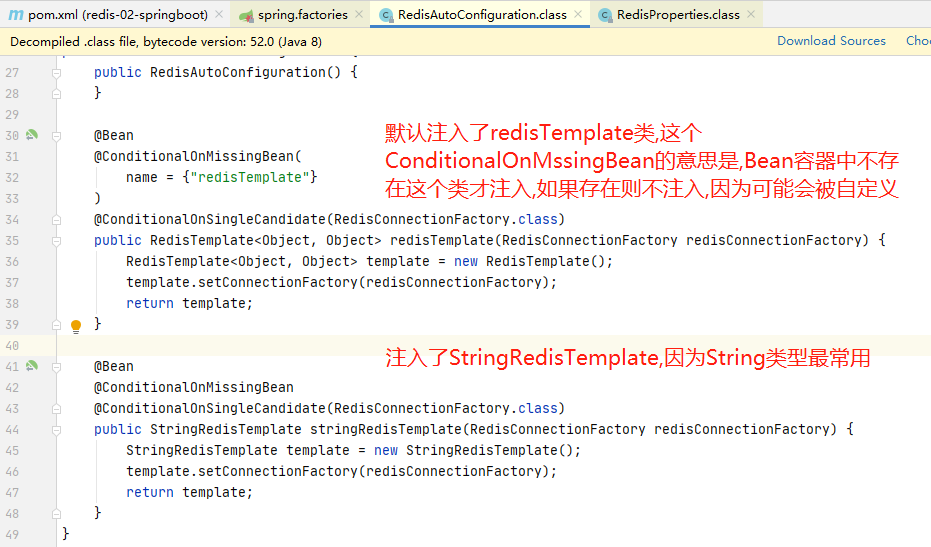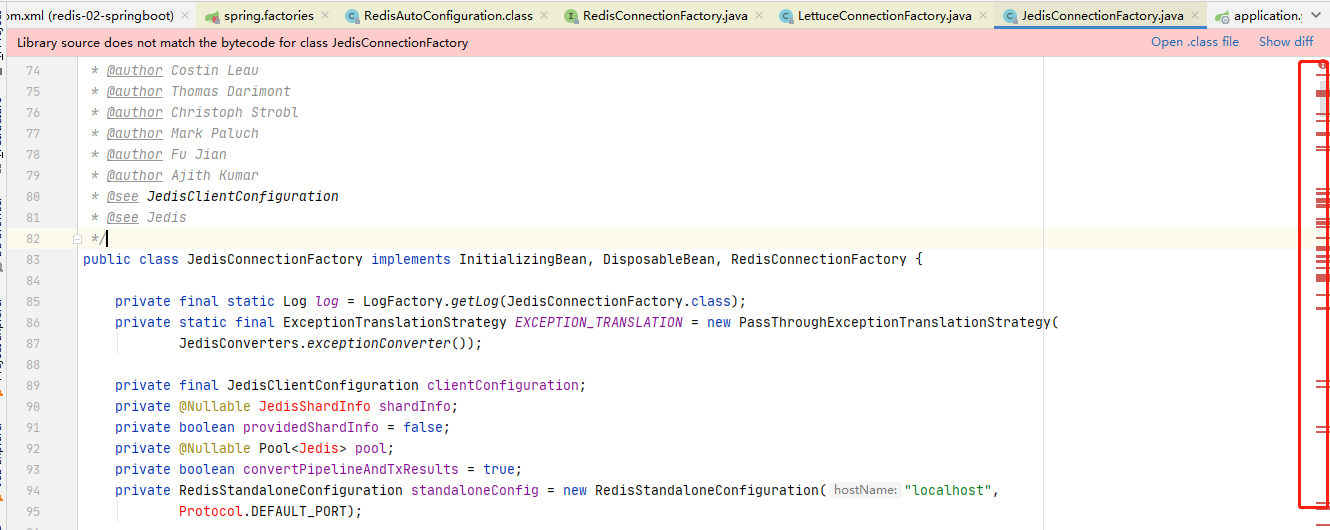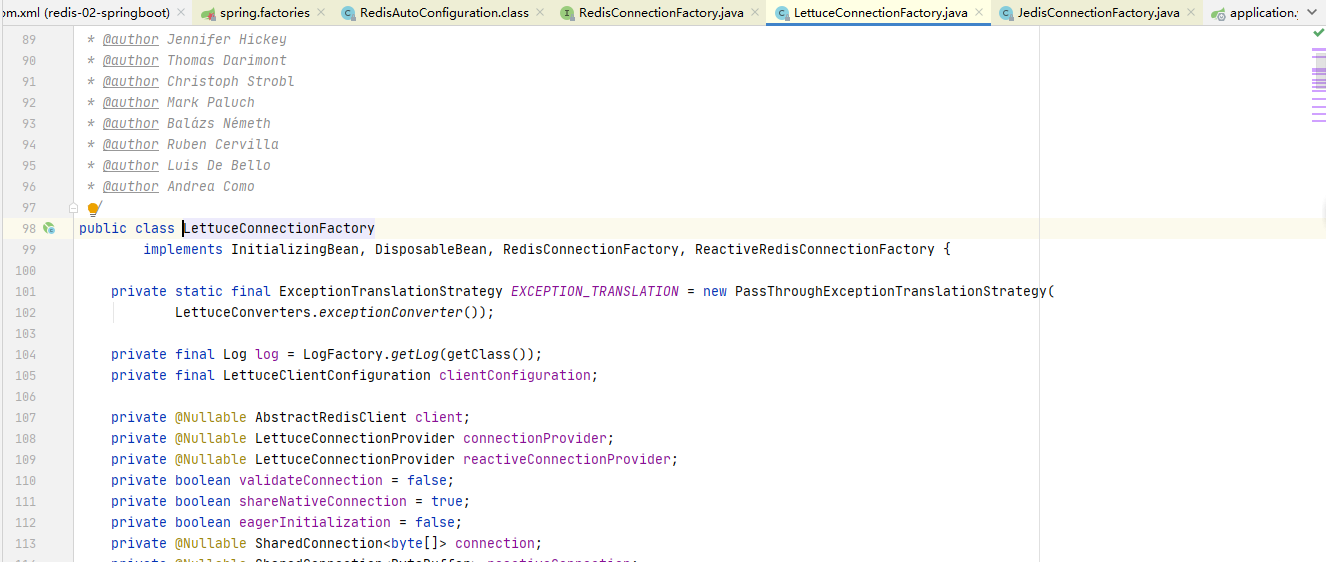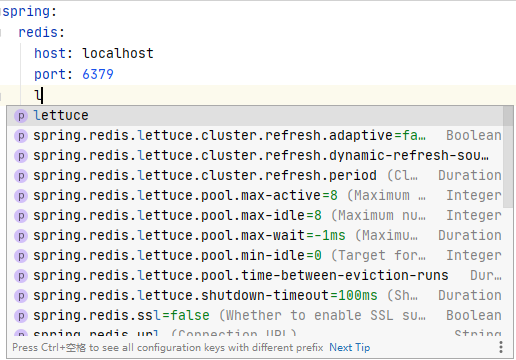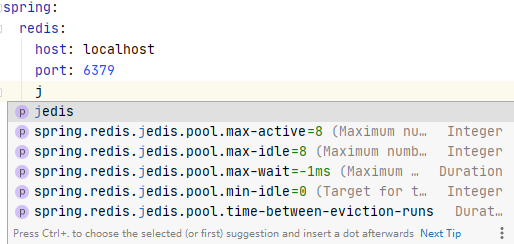How SpringBoot integrates Redis operation API
SpringDataRedis calls Redis underlying interpretation
Before SpringBoot2.X, the officially recommended Jedis connection Redis was used directly
In 2 After . The operation is unsafe. If you want to avoid being unsafe, use the Jedis pool connection pool; BIO
lettuce: Netty is used as the bottom layer. The instance can be shared between multiple threads, and there is no thread incompatibility. In case of safety, the number of threads can be reduced; NIO

- SpringBoot integrates Redis (source code analysis)
- All configuration classes of SpringBoot, There is an automatic configuration class
- The automatic configuration class will be bound to a properties file
Find Spring.factories
# in the source code#Search for redis and find AutoConfiguration
##Press ctrl and click to enter the class

- ##Find redisproperties.class

- ctrl click to enter

- ## It contains all the redis related configurations. Let’s take a brief look at it first, and we will talk about the others later.

- ##Bean injected by default

- But the default redisTemplate has some problems. Its key is of type Object, but the general key we expect They are all of type String, which requires forced type conversion, so as mentioned above, you can define RedisTemplate yourself
 When configuring the configuration file, if you need to configure the connection pool, use lettuce , do not configure Redis directly, it will not take effect if configured.
When configuring the configuration file, if you need to configure the connection pool, use lettuce , do not configure Redis directly, it will not take effect if configured.Check the RedisConnectionFactory during injection

There are two subclasses, namely JedisConnectionFactory and LettuceConnectionFactory
#Because the JedisConnectionFactory class Many of the dependent classes do not exist, so you cannot use it directly. Dependencies are all existing

so when configuring, use lettuce’s

Do not directly configure jedis’s

SpringBoot integration Redis (configuration)
yml-
Copy the properties to create a configuration file in yml format. I still like yml
 Maven
Mavenspring: redis: host: localhost port: 6379Copy after login- Writing tests
- Open the test class created by SpringBoot by default

在项目创建的时候选择,如果没有选择就添加
<dependency>
<groupId>org.springframework.boot</groupId>
<artifactId>spring-boot-starter-data-redis</artifactId>
</dependency>
For example, opsForValue is to operate strings
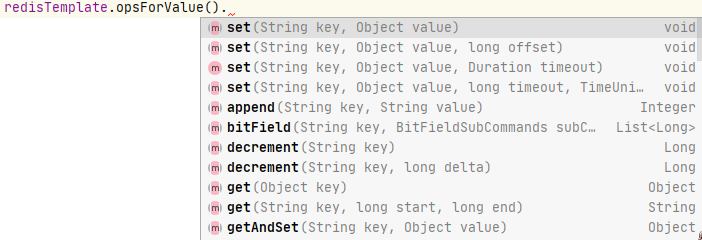
常用的操作可以直接点就可以了
关于事物的
redisTemplate.unwatch();
redisTemplate.watch("key");
redisTemplate.multi();
redisTemplate.discard();
redisTemplate.exec();关于数据库的操作需要获取链接后使用连接对象操作
RedisConnection connection = redisTemplate.getConnectionFactory().getConnection();connection.flushAll();connection.flushDb();connection.close();
测试代码及其执行结果
package co.flower.redis02springboot;import org.junit.jupiter.api.Test;import org.springframework.beans.factory.annotation.Autowired;import org.springframework.boot.test.context.SpringBootTest;import org.springframework.data.redis.connection.RedisConnection;import org.springframework.data.redis.core.RedisTemplate;
@SpringBootTestclass Redis02SpringbootApplicationTests {/** * 我居然直接就指定了泛型 RedisTemplate<String,Object>结果就直接报错了,删除泛型后成功 */@Autowiredprivate RedisTemplate redisTemplate;
@Testvoid contextLoads() {// 英文测试redisTemplate.opsForValue().set("name","xiaojiejie");
System.out.println(redisTemplate.opsForValue().get("name"));// 中文测试redisTemplate.opsForValue().set("name","小姐姐");
System.out.println(redisTemplate.opsForValue().get("name"));
}
}
执行结果,SpringBoot的启动加载和结束销毁没有粘贴/***SpringBootStart****/xiaojiejie
小姐姐/***SpringBootStop*****/The above is the detailed content of How SpringBoot integrates Redis operation API. For more information, please follow other related articles on the PHP Chinese website!

Hot AI Tools

Undresser.AI Undress
AI-powered app for creating realistic nude photos

AI Clothes Remover
Online AI tool for removing clothes from photos.

Undress AI Tool
Undress images for free

Clothoff.io
AI clothes remover

Video Face Swap
Swap faces in any video effortlessly with our completely free AI face swap tool!

Hot Article

Hot Tools

Notepad++7.3.1
Easy-to-use and free code editor

SublimeText3 Chinese version
Chinese version, very easy to use

Zend Studio 13.0.1
Powerful PHP integrated development environment

Dreamweaver CS6
Visual web development tools

SublimeText3 Mac version
God-level code editing software (SublimeText3)

Hot Topics
 1659
1659
 14
14
 1416
1416
 52
52
 1310
1310
 25
25
 1258
1258
 29
29
 1232
1232
 24
24
 How to build the redis cluster mode
Apr 10, 2025 pm 10:15 PM
How to build the redis cluster mode
Apr 10, 2025 pm 10:15 PM
Redis cluster mode deploys Redis instances to multiple servers through sharding, improving scalability and availability. The construction steps are as follows: Create odd Redis instances with different ports; Create 3 sentinel instances, monitor Redis instances and failover; configure sentinel configuration files, add monitoring Redis instance information and failover settings; configure Redis instance configuration files, enable cluster mode and specify the cluster information file path; create nodes.conf file, containing information of each Redis instance; start the cluster, execute the create command to create a cluster and specify the number of replicas; log in to the cluster to execute the CLUSTER INFO command to verify the cluster status; make
 How to clear redis data
Apr 10, 2025 pm 10:06 PM
How to clear redis data
Apr 10, 2025 pm 10:06 PM
How to clear Redis data: Use the FLUSHALL command to clear all key values. Use the FLUSHDB command to clear the key value of the currently selected database. Use SELECT to switch databases, and then use FLUSHDB to clear multiple databases. Use the DEL command to delete a specific key. Use the redis-cli tool to clear the data.
 How to read redis queue
Apr 10, 2025 pm 10:12 PM
How to read redis queue
Apr 10, 2025 pm 10:12 PM
To read a queue from Redis, you need to get the queue name, read the elements using the LPOP command, and process the empty queue. The specific steps are as follows: Get the queue name: name it with the prefix of "queue:" such as "queue:my-queue". Use the LPOP command: Eject the element from the head of the queue and return its value, such as LPOP queue:my-queue. Processing empty queues: If the queue is empty, LPOP returns nil, and you can check whether the queue exists before reading the element.
 How to configure Lua script execution time in centos redis
Apr 14, 2025 pm 02:12 PM
How to configure Lua script execution time in centos redis
Apr 14, 2025 pm 02:12 PM
On CentOS systems, you can limit the execution time of Lua scripts by modifying Redis configuration files or using Redis commands to prevent malicious scripts from consuming too much resources. Method 1: Modify the Redis configuration file and locate the Redis configuration file: The Redis configuration file is usually located in /etc/redis/redis.conf. Edit configuration file: Open the configuration file using a text editor (such as vi or nano): sudovi/etc/redis/redis.conf Set the Lua script execution time limit: Add or modify the following lines in the configuration file to set the maximum execution time of the Lua script (unit: milliseconds)
 How to use the redis command line
Apr 10, 2025 pm 10:18 PM
How to use the redis command line
Apr 10, 2025 pm 10:18 PM
Use the Redis command line tool (redis-cli) to manage and operate Redis through the following steps: Connect to the server, specify the address and port. Send commands to the server using the command name and parameters. Use the HELP command to view help information for a specific command. Use the QUIT command to exit the command line tool.
 How to implement redis counter
Apr 10, 2025 pm 10:21 PM
How to implement redis counter
Apr 10, 2025 pm 10:21 PM
Redis counter is a mechanism that uses Redis key-value pair storage to implement counting operations, including the following steps: creating counter keys, increasing counts, decreasing counts, resetting counts, and obtaining counts. The advantages of Redis counters include fast speed, high concurrency, durability and simplicity and ease of use. It can be used in scenarios such as user access counting, real-time metric tracking, game scores and rankings, and order processing counting.
 How to set the redis expiration policy
Apr 10, 2025 pm 10:03 PM
How to set the redis expiration policy
Apr 10, 2025 pm 10:03 PM
There are two types of Redis data expiration strategies: periodic deletion: periodic scan to delete the expired key, which can be set through expired-time-cap-remove-count and expired-time-cap-remove-delay parameters. Lazy Deletion: Check for deletion expired keys only when keys are read or written. They can be set through lazyfree-lazy-eviction, lazyfree-lazy-expire, lazyfree-lazy-user-del parameters.
 How to optimize the performance of debian readdir
Apr 13, 2025 am 08:48 AM
How to optimize the performance of debian readdir
Apr 13, 2025 am 08:48 AM
In Debian systems, readdir system calls are used to read directory contents. If its performance is not good, try the following optimization strategy: Simplify the number of directory files: Split large directories into multiple small directories as much as possible, reducing the number of items processed per readdir call. Enable directory content caching: build a cache mechanism, update the cache regularly or when directory content changes, and reduce frequent calls to readdir. Memory caches (such as Memcached or Redis) or local caches (such as files or databases) can be considered. Adopt efficient data structure: If you implement directory traversal by yourself, select more efficient data structures (such as hash tables instead of linear search) to store and access directory information




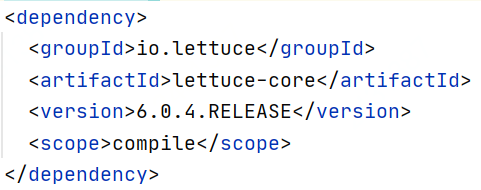
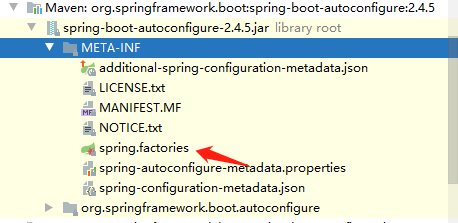
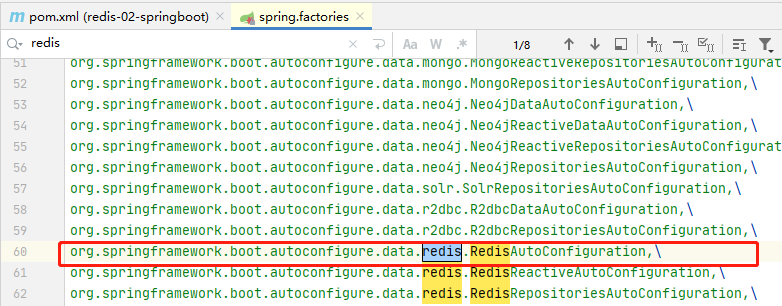

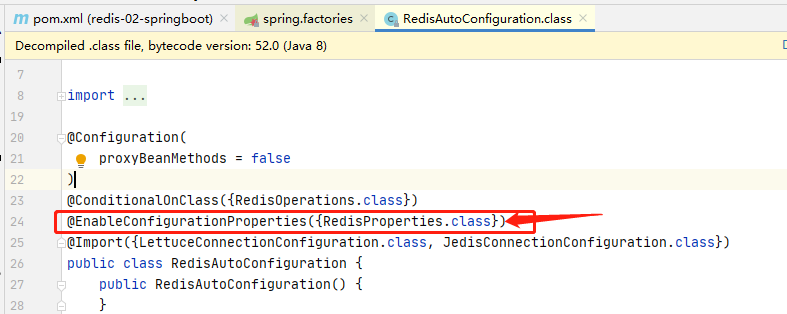

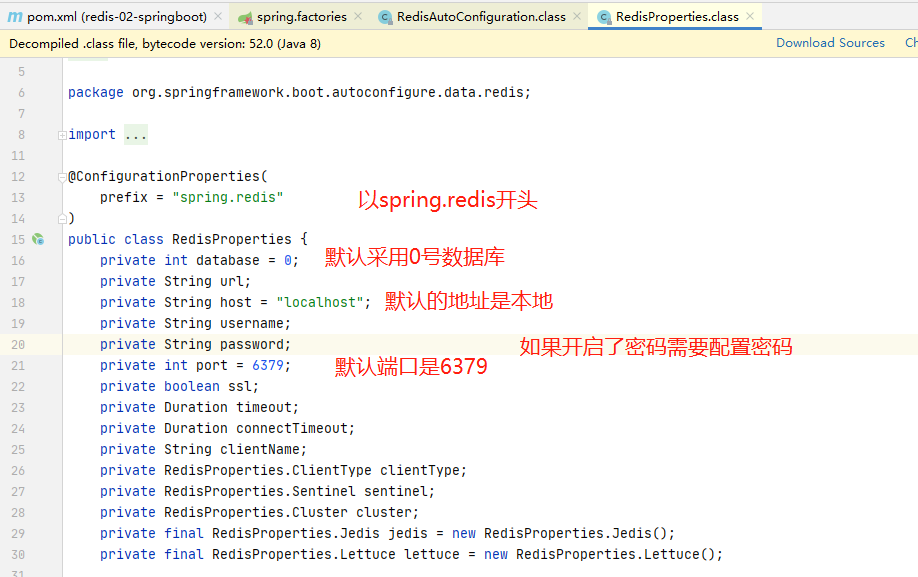 When configuring the configuration file, if you need to configure the connection pool, use lettuce , do not configure Redis directly, it will not take effect if configured.
When configuring the configuration file, if you need to configure the connection pool, use lettuce , do not configure Redis directly, it will not take effect if configured.